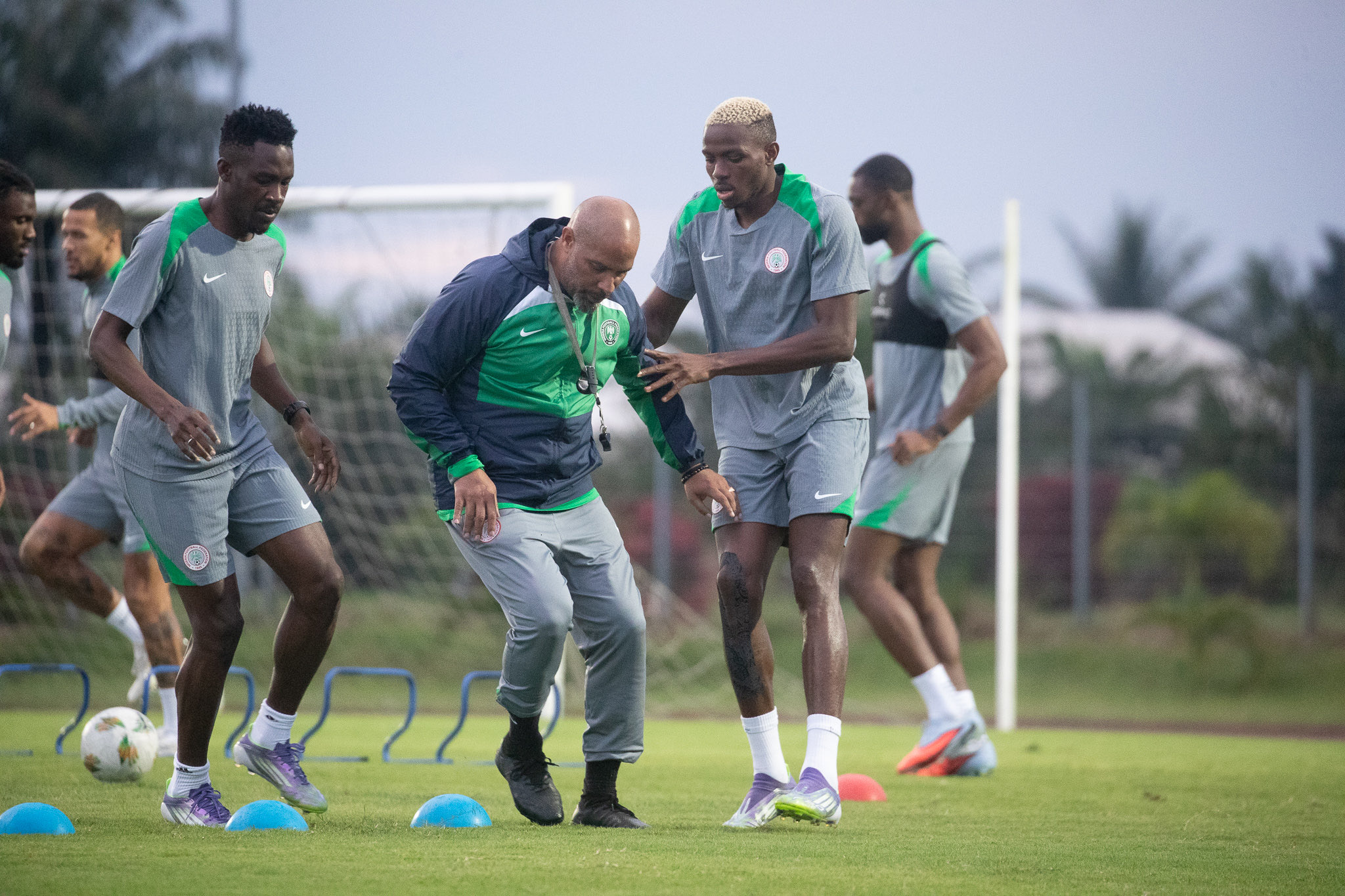Iwobi’s Viral Video Exposes Subpar Lodging in Morocco Amid World Cup Push
As the Super Eagles of Nigeria hunkered down in Rabat for a high-stakes 2026 FIFA World Cup playoff against Gabon, midfielder Alex Iwobi unwittingly ignited a firestorm of criticism with a silent social media video that laid bare the team’s modest accommodations. The footage, capturing a grim exterior view from his hotel room—complete with weathered buildings, dangling laundry, and outdated satellite dishes—has fueled accusations of neglect by the Nigeria Football Federation (NFF) and the Confederation of African Football (CAF), just days before Thursday’s must-win clash at the Prince Moulay Abdellah Stadium.
Iwobi, the Fulham star with 89 caps for Nigeria, posted the clip on Sunday without commentary, panning across the rundown surroundings of the Rive Hotel, the team’s base. The 57-second video, which has racked up millions of views across platforms, struck a nerve among fans already weary of recurring logistical lapses in Nigerian football. “This isn’t a hotel; it’s a hostel in a slum,” one supporter lamented in the comments, echoing a chorus of outrage over what many see as an insult to the continent’s most decorated national team.
The NFF swiftly pushed back, with spokesperson Ademola Olajire clarifying via social media that the video merely showed “an old building visible from a window” and that the Rive was deliberately chosen for its proximity to training facilities and the stadium—mere minutes away in Rabat’s bustling Agdal district. 14 “The hotel is comfortable and secure,” Olajire insisted, noting that 14 players, including captain William Troost-Ekong, Wilfred Ndidi, Moses Simon, and Ademola Lookman, had arrived by Monday evening. Iwobi himself followed up with a lighthearted clarification, insisting he was “just sharing the view” and not lodging complaints, though the damage to public perception was already done. 17
Social media erupted, with users dissecting the video frame by frame. @dele003 blasted CAF and FIFA as “utterly useless,” questioning how Morocco—hosts of the 2030 World Cup—could offer such subpar digs for a four-day tournament. “The NFF should’ve scouted ahead and rejected this,” they wrote, tagging federation officials in a post that garnered over 5,000 likes. 0 @prolific_eric piled on, decrying the irony of stars from “the richest Black nation on earth” enduring what he called “not even a 2-star hotel.” “Selfishness and corruption at its peak—countries with half our resources treat players like kings,” he fumed, his thread sparking debates on systemic mismanagement. 1
Critics like @MiraculousSound tied the accommodations to broader motivational woes: “After drilling mentality into these players, you stick them in this dump? Expect miracles on the pitch?” Meanwhile, @MntwanaThokoza2 alleged outright graft, claiming the NFF “booked a rundown spot to pocket the difference—pure money looting.” 2 The backlash echoes earlier scandals, including the Super Falcons’ complaints about substandard rooms at the Women’s Africa Cup of Nations in Morocco earlier this year, and a March incident where Super Eagles players were forced to share beds during qualifiers against Zimbabwe and Rwanda. 12
Not all reactions were condemnatory. @Ameboibadan offered a contrarian spin, framing the setup as “tough love training.” “Comfort breeds complacency—if they’re cozy, they might slack and lose. This keeps them hungry to win, or no ride home. Props to NFF for the discipline,” the post read, drawing a mix of eye-rolls and reluctant chuckles. 3 Others, like @ArcSadam, used sarcasm to jab at government priorities: “No one insult Nigeria’s leaders after this—proof we’re world-class at cutting corners.” 18
The controversy arrives at a pivotal moment for Finidi George’s side, who advanced to the playoffs after a gritty group-stage finish, including a 4-0 thrashing of Benin. With Gabon coached by Thierry Mouyouma plotting a tactical upset, the Eagles—bolstered by arrivals like Victor Osimhen and Victor Boniface—face immense pressure to secure a spot in the intercontinental playoffs against an Asian side. Yet, as camp buzzes with 24-man squad integration and evening drills, the hotel saga underscores deeper fissures: CAF’s responsibility for neutral-venue logistics clashing with NFF’s oversight, all while players foot the bill for their focus.
Neither CAF nor the NFF has announced plans to relocate, but the federation’s damage control hints at internal reviews. For Iwobi and his teammates, the real test looms Thursday: Can they channel the discomfort into dominance, or will it fester as another footnote in Nigeria’s turbulent football narrative? As one fan put it, “Win, and it’s forgotten. Lose, and it’s legendarily bad.” The eyes of a football-mad nation—and beyond—are watching.

